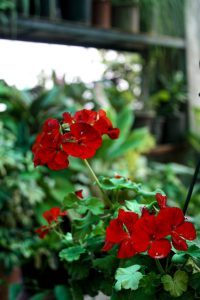Every human has been created with the innate desire to be seen and known, but invisibility often seems easier in light of our unique challenges with the sin and weights that have burdened us. We retreat, hiding parts of ourselves, our history, and the testimony that the Lord is building within.
 Being a maverick or a loner doesn’t demand the engagement and intimacy that comes through a raw relationship, but rather intensifies isolation and separates us from the help and strength that multiplies in healthy relationships.
Being a maverick or a loner doesn’t demand the engagement and intimacy that comes through a raw relationship, but rather intensifies isolation and separates us from the help and strength that multiplies in healthy relationships.
While we might want to shield ourselves from vulnerability, God created us for community with Him and each other. Regardless of our struggle, whether dependence on a chemical substance or another form of addiction, the benefit of being known also comes with risk.
In the space where we want to connect, transparency makes us vulnerable. That doesn’t mean that we run from community, however. We have to allow for authenticity that invites meaningful connection and forges a foundation for life-giving relationships.
Jesus is the head of one Church, one Body; we are the many parts who receive grace to grow, as we learn and live together (1 Corinthians 12:12, 27). It’s through the working of the Spirit that our lives teach and testify to one another, and ultimately, the world, of the Father’s goodness.
Prodigals and pigpens and chemical dependency
We may have wandered as prodigals into the pigpens where chemical dependency produced behaviors we never thought we’d see in ourselves. Yet, we don’t have to rehearse these stories. We can trade the shame for the enduring testimony and the robe of righteousness, ring of authority, and shoes of peace that our Father wants to give us.
No drug or high can deeply satisfy our innate needs of being seen, known, and loved. Instead, we must be willing to envision ourselves as God does. When we welcome the presence of His Son, our Savior, we can exchange our weakness for what emerges exclusively from His power (2 Corinthians 12:9).
Home again, in the father’s heart
The prodigal son risked returning home, believing that he could serve in his father’s house. He had relinquished sonship when he demanded his portion of the inheritance. He abdicated his role, abandoning his Father and family to search for what he eventually discovered was at home all along. Yet, the Father didn’t reject or chide his son when he noticed him approaching. Instead, he ran to meet him along the way. He conferred mercy instead of judgment, deeming His son worthy of gifts and celebration (Luke 15:11-32).
Instead of a servant’s position, the son encountered abundant blessings of reconciliation and restoration that exceeded his imagination (Ephesians 3:20). The son’s behavior didn’t warrant it, but his merciful Father wanted to validate his worth, affirm his identity, and publicly demonstrate that he belonged.
Similarly, our testimonies of chemical dependency, crashing, and getting clean (or at least walking in the direction of Home to our Heavenly Father) testify of His willingness to meet us wherever we are. He has established an unbreakable covenant with us, forever calling us up into who He has always known us to be.
Next steps to recover from chemical dependency
Everyone has a path to walk with the Lord. Where you are in your journey is the place where God wants to meet you. Like the prodigal son, you don’t have to clean yourself up to be radically loved, embraced, and celebrated by the One who loved you first and still loves you best.
Search the resources on this site, and select a counselor. Come home to the Father, finding the support needed to encounter the abundance of belonging and blessing that has awaited you all along.
“Red Flowers”, Courtesy of Stefek Chmielewski, Unsplash.com, CC0 License; “Red Flowers”, Courtesy of Sabita Sahu, Unsplash.com, CC0 License






